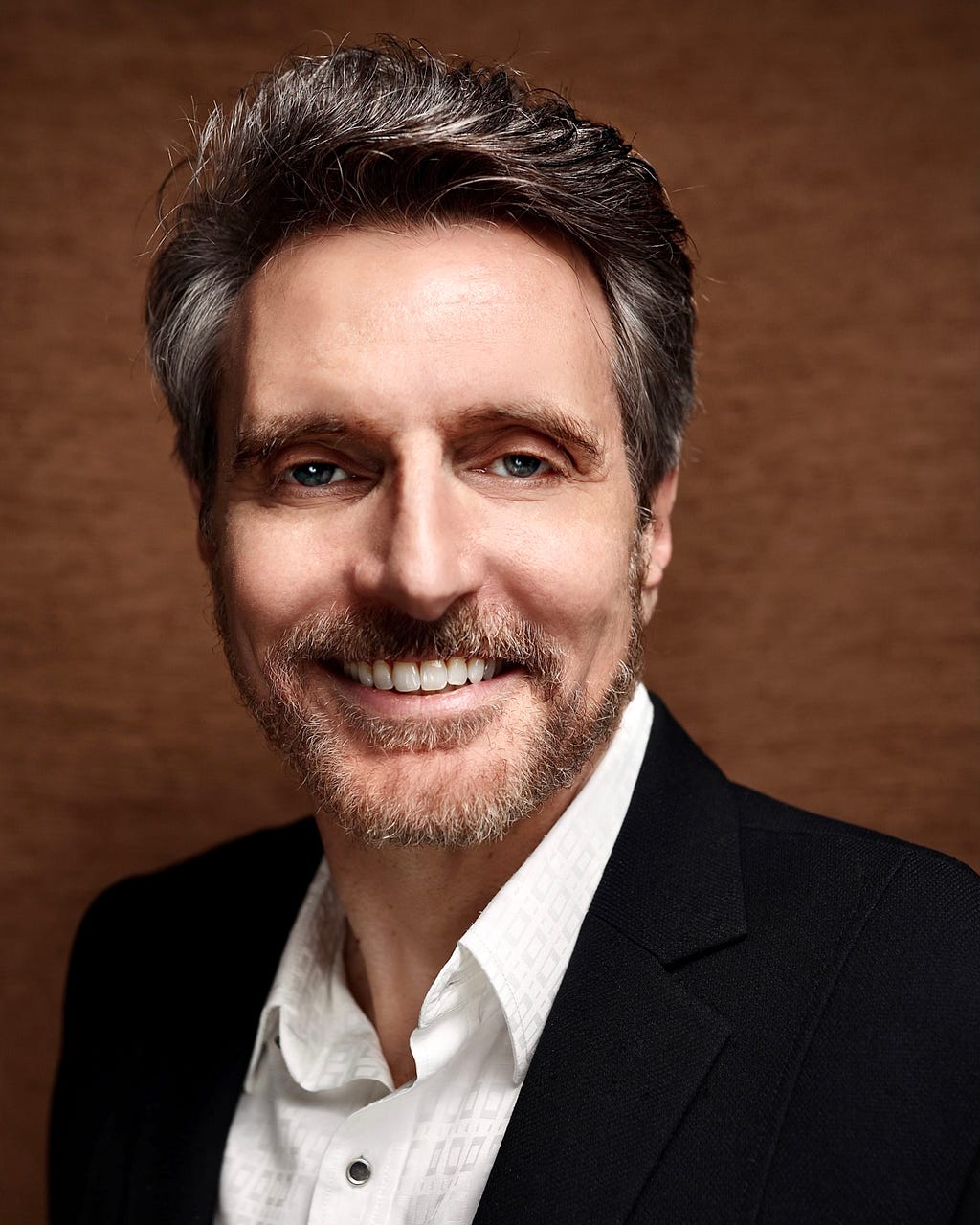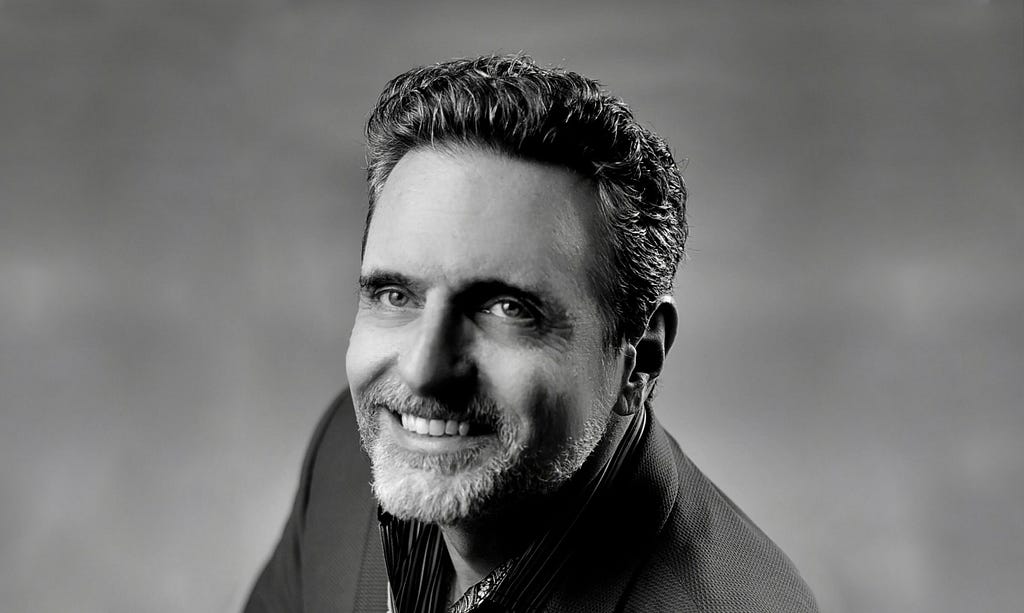Randall J. Slavin of Winn Slavin Fine Art: 5 Things I Wish Someone Told Me When I First Became An Art Curator

“Nothing will go as you expect it to go.” We all have perceptions of how things “should” go, but the real world teaches us quickly that if we’re doing things of significance, we don’t initially have a complete perspective.
As a part of our series about “5 Things I Wish Someone Told Me When I First Became An Artist or Art Curator” I had the pleasure of interviewing Randall J. Slavin.
Randall J. Slavin is an American entrepreneur, fine art dealer, and philanthropist. As a premiere provider of international fine art, with galleries established in such locations as Shanghai, Vietnam, and Beverly Hills, Slavin is the proprietor of Winn Slavin Fine Art. He’s also the director of the Academy of Fine Art Foundation, a non-profit formed to raise awareness and educate in the area of fine art and to promote philanthropic activities; the publisher of Art Confidential, a luxury lifestyle publication dedicated to the fine-art culture; and the CEO of WS Productions, for which he executive produced the cinematic short “Creation” and is currently in pre-production on its feature-length version.
Thank you so much for doing this with us! Can you tell us the story of how you grew up?
I come from humble origins. During my early childhood, my father served in the U.S. Air Force. He did three tours of duty in Vietnam and returned partially disabled. When he retired, he did various blue-collar jobs to make ends meet, but we lived in poverty for most of my childhood. He aspired to be an artist and returned to school for a degree in art education, but never found a teaching position. He was also never able to make a living from his artwork as he lacked the discipline, structure, and representation that it requires.
Can you share a story with us about what brought you to this specific career path?
Having lived in poverty partly because of my father’s artistic aspirations, I had no interest in pursuing a career in the arts. I’m a highly rational thinker, which led me to degrees in Business and Information Systems and an early career in information technology. As I grew bored of that profession, I met Sir Daniel Winn. Sir Daniel is an artist, and at the time he had a small gallery in Laguna Beach primarily representing other artists’ works. He’s a brilliantly creative thinker, which provided a contrast to my daily work. I started helping him with the business aspects of the gallery. Eventually, I encouraged him to close the retail gallery and join me in forming Masterpiece Publishing, an artist agency and art wholesaler. My thinking at the time was that we could make a more profound impact by representing artists and promoting them worldwide to museums and galleries.
Masterpiece realized significant success, but the Great Recession, the rise of inexpensive reproduction processes, and the advent of social media ravaged the wholesale market. It was at that point that we refocused our efforts. We went upmarket, and instead of selling to 100 or so galleries, we became a strategic partner to about a dozen galleries. Eventually, we realized that no one could represent our artists to the retail buyer as well as we could, and Winn Slavin Fine Art was born, bringing us full circle.
Can you tell us the most interesting story that happened to you since you began your career?
There are so many stories — many of which would not endear me to my fellow gallery owners! Despite the all too prevalent pretense, the gallery business is still a business and experiences the same challenges as every other business. But there are unique challenges as well. One of the most distinctive is that artists often sabotage themselves as they begin to become successful.
Artists are intuitive thinkers, but contemporary western society tends to recognize, reward, and encourage rational thinkers. That dichotomy leads artists to inherent insecurity. They want to succeed but don’t think they are worthy of success. Artistic success requires both intuitive and rational thinking, which generally means a collaborative effort between individuals who see the world and approach decision-making differently. Artists are usually the most insecure of those individuals. As they realize success, they doubt their worthiness and either take on a false arrogance thinking they can do it all themselves or they shut down and stop producing meaningful work. Both are fatal to an artist’s career.
What are some of the most interesting or exciting projects you are working on now?
I’m fortunate to work with a diverse and talented group of artists and gallery staff. That’s the core of my business. Recently, I’ve become involved in yet another field that I never envisioned I would be in — the world of film. Last year we completed production on a short artistic film titled “Creation” that explores the Existential Surrealism of Sir Daniel Winn. Currently, we’re in pre-production on a feature-length film based on that short film and a feature film based on Sir Daniel’s journey from a war orphan to a successful artist.
I’m also collaborating on a metaverse-based art marketplace which will allow me to expand my ability to reach emerging artists and to curate and present their artwork in a virtual reality setting, unlike anything that’s being done currently. That’s an interesting project because I’m coming full circle… returning to my information systems roots.
Who are some of the most interesting people you have interacted with? What was that like? Do you have any stories?
The art business brings together an oddly eclectic group of people. It’s a hodgepodge of impoverished artists and some of the wealthiest, most successful people in the world. Quite literally, both princes and paupers. They’re all bound together by a love of art, which transcends class, culture, and language.
Where do you draw inspiration from? Can you share a story about that?
My inspiration comes from dichotomy. I grew up in poverty, but I now rub elbows with the uberwealthy. I was raised in the Christian faith but with a Jewish father, and now I’m more of a Buddhist. I’m a highly rational person in a profession populated by intuitive, creative thinkers. Contrasting experiences like these allow me to think outside the box and integrate multiple divergent perspectives to create something greater than any single perspective could create.
How have you used your success to bring goodness to the world?
I’ve been blessed to have been able to transcend the limitations of my childhood. I’ve known hunger, poverty, desperation, and despair. Those experiences and the success I’ve achieved are humbling. Hard work, drive, and talent have been major factors in my success. So too, opportunity, the support of others, and a certain amount of luck have been instrumental to my success.
I’m cognizant of the fact that everyone has the potential for success, for greatness. The idea that hunger or the other hallmarks of poverty might deprive the world of a great talent is anathema to me. As such, I endeavor to address those social ills however I can.
I founded the Academy of Fine Art Foundation in 2001 with the idea that art can benefit humanity. Not simply through cultural enlightenment, but also in practical, real-world ways. I’ve been blessed, with the help of many others, to have played a role in raising over ten million dollars to provide food, medicine, and medical care for the indigent. I see those efforts as the way I will make the most lasting impact on the world.

What are your “5 things I wish someone told me when I first started” and why. Please share a story or example for each.
- “Nothing will go as you expect it to go.” We all have perceptions of how things “should” go, but the real world teaches us quickly that if we’re doing things of significance, we don’t initially have a complete perspective.
- “Everything will happen precisely as it is supposed to happen.” Things happen the way they are supposed to happen, even if that’s not the way we expect or want them to happen. Usually, the end result is more productive than if they’d gone the way we thought they should.
- “Transition and change are the natural states.” There is something about human nature that both embraces and avoids change simultaneously. We tend to welcome change when we feel we haven’t achieved or acquired that which we’re due and avoid change when we doubt that we’re worthy of what we have achieved or acquired. Embracing the idea that “change is the only constant” allows us to be happier, healthier, and more successful.
- “Everyone enters your life for a reason.” Every person that we interact with in a meaningful way is in our life to teach us something. It isn’t random. Whether our interactions with them are supportive or unfavorable, there is something for us to learn.
- “The true measure of one’s life is the love we leave behind when we’re gone.” The accumulation of wealth, power, and fame is meaningless unless we can use them to make a positive impact on the world. If we live a life of affirmation, integrity, and love, we make a more lasting impact than if we merely accumulate those things.
You are a person of great influence. If you could inspire a movement that would bring the most amount of good to the most amount of people, what would that be? You never know what your idea can trigger.
Simply that each of us recognizes that we are no better or worse than anyone else. We may have different talents, abilities, or skills than others, and we may be rewarded or punished for those differences, but every human being is inherently and equally worthy of respect.
We have been blessed that some of the biggest names in Business, VC funding, Sports, and Entertainment read this column. Is there a person in the world, or in the US whom you would love to have a private breakfast or lunch with, and why? He or she just might see this.
I’ve never really been a “fan.” Fame, success, and prominence don’t make an individual more worthy than anyone else. It’s what’s in someone’s heart that draws me to them. The people whose hearts I most admire are no longer with us. If I could transcend time and language barriers, it would be the great spiritual leaders, Buddha, Jesus, and Mohammed. They are individuals whose hearts and teachings inspired real change in the human experience.
What is the best way our readers can follow you on social media?
I’m not personally active on social media, but the gallery has a presence on Facebook and Instagram (@winnslavin).
This was very inspiring. Thank you so much for joining us!
Randall J Slavin of Winn Slavin Fine Art: 5 Things I Wish Someone Told Me When I First Became An Ar was originally published in Authority Magazine on Medium, where people are continuing the conversation by highlighting and responding to this story.
